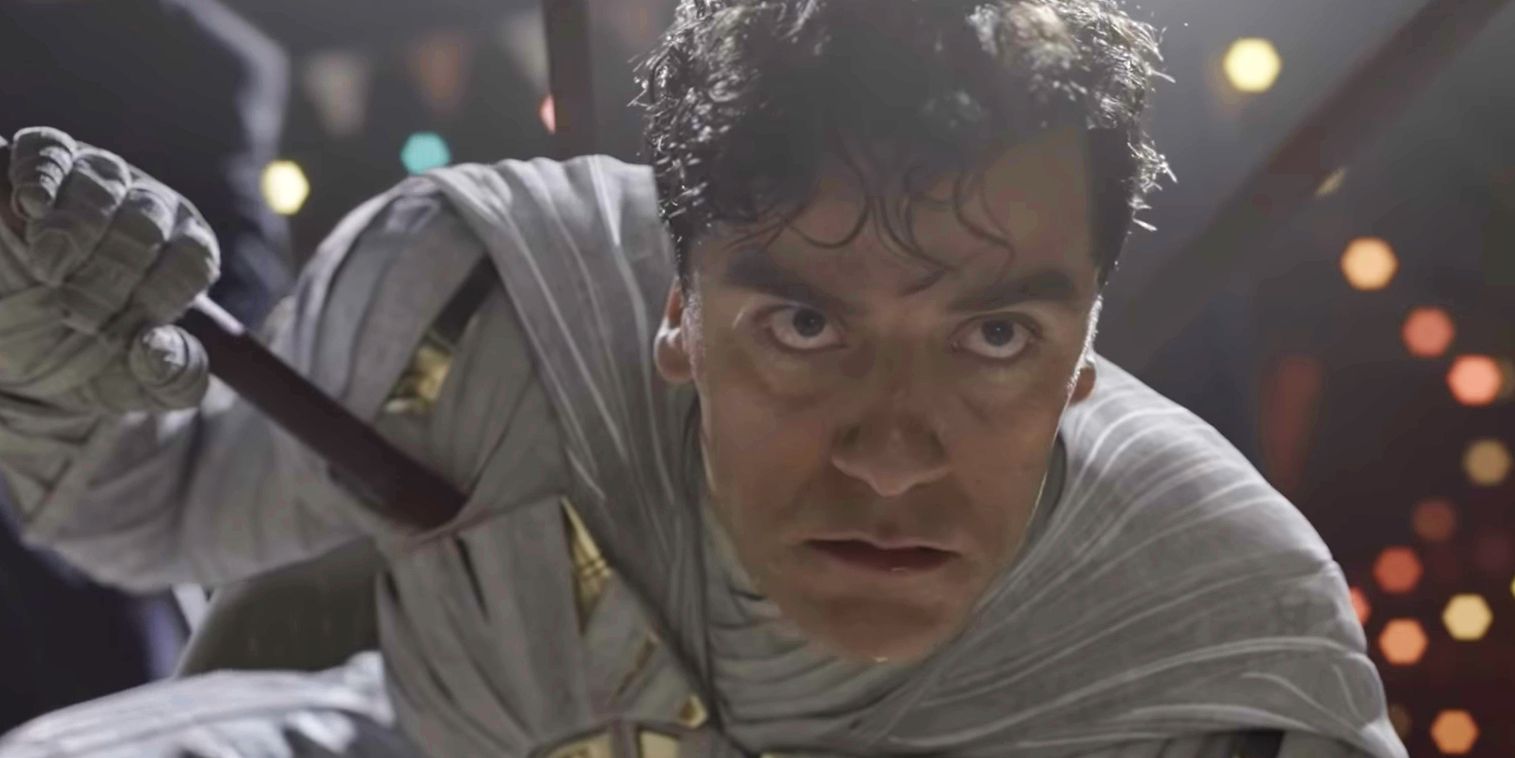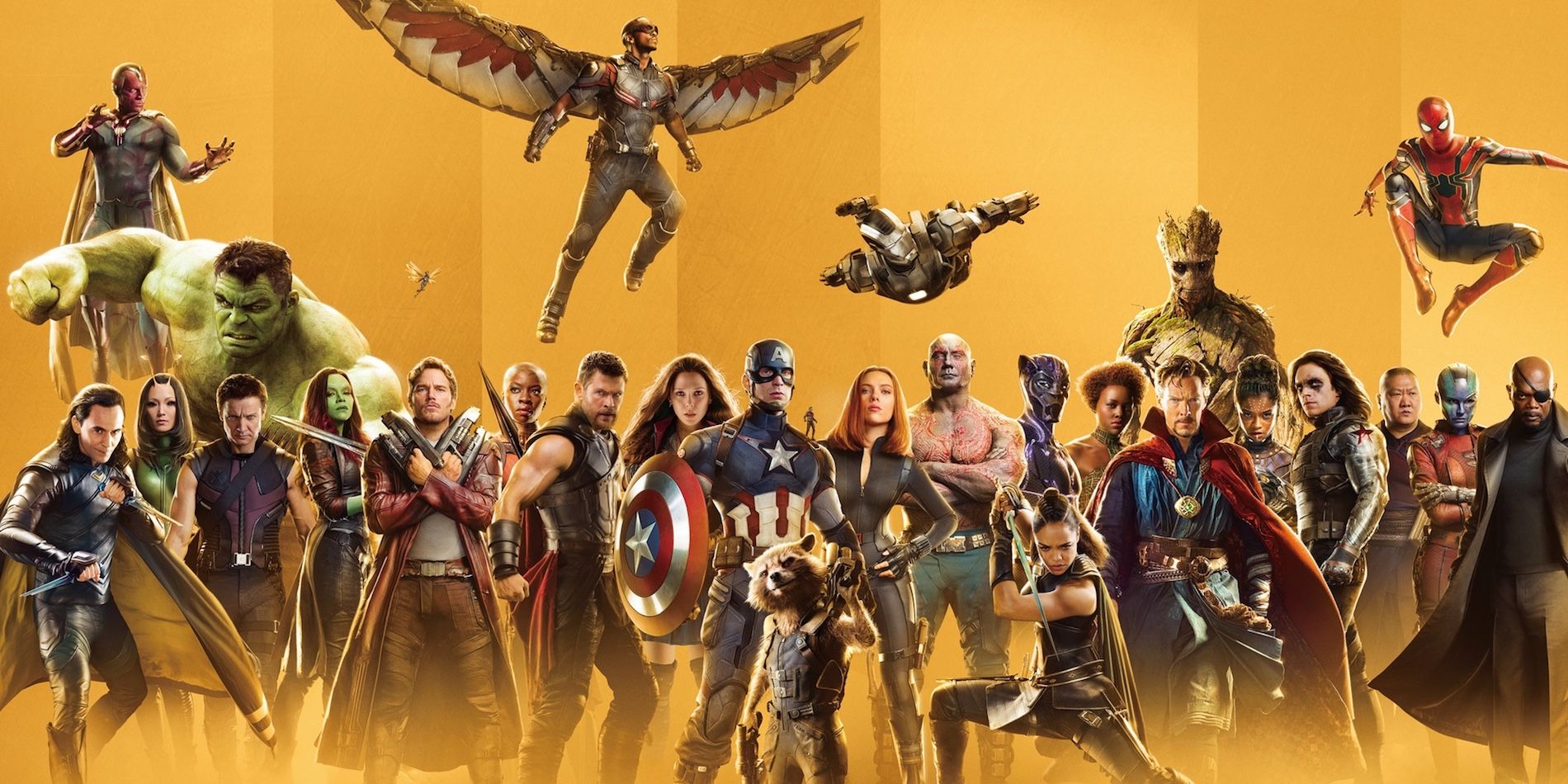Oscar Isaac's Moon Knight stint in the MCU marks a shift in how Marvel Studios handles its contracts. Debuting in his own Disney+ series, Moon Knight, Isaac plays one of the newest heroes in the universe. While Moon Knight's arc is just beginning, it's unclear where and when he will pop up next in the franchise.
Before it even premiered, Moon Knight was already confirmed to be a limited series. This meant that the show was crafted to only last one season, with a definitive ending. After its six-episode run, however, it's clear that the series was setting up Steven Grant and Marc Spector's future in the MCU with the introduction of third alter Jake Lockley. Marvel Studios continues to remain mum about what comes next for the character, but Isaac previously revealed his Marvel contract was only for one season of the Disney+ series. This means that if the franchise needs Moon Knight to appear in any future MCU projects, they would have to re-negotiate pay and duration.
According to former legal counsel at Marvel Studios, Paul Sarker, this is a shift in procedure for the organization. In an exclusive interview with Screen Rant, he reveals he was surprised upon learning that Isaac only got a one-season deal as Moon Knight. Apparently, Marvel Studios tends to lock up their talent for far longer, in an effort to guarantee their involvement in any other upcoming project that may need their character's presence. He did acknowledge Kevin Feige's comments about experimenting on short-term deals to give actors more freedom when joining the MCU. Read his full quote below:
I was surprised to hear Oscar Isaac did a one-season deal, because when I was at Marvel - granted, this was five or six years ago - contracts with actors were significantly longer. They often involved options for theatrical, options for sequels and prequels, cameo options, and other options for franchises, and often for television. Marvel, because of the interconnected nature of its stories and the fact it's producing content in so many different genres and forms of mediums, needs a lot of flexibility.
But also they want to have some contractual predictability to be able to say, 'If we need this character to appear in a TV show, and we can't recast every time...' The option structure gives them a lot of flexibility in terms of the price, and certainty knowing there'll be continuity between the actor playing the same part in the film and the TV show - that's what fans appreciate. So, there's clearly benefits to having that from a studio perspective.
That being said, as Kevin [Feige] said last year, they're leaning towards shorter-term deals now, because they don't want actors to feel forced to be in movies - and it is a huge commitment. If you're offering the role to someone who's just starting out in the MCU, they may be a very established actor such as Oscar Isaac or Joaquin Phoenix, and you offer them a deal with ten options that could take up a decade of their life... That's a huge commitment. Marvel movies are big-budget; they're not necessarily year round, but you have to stay in shape, you have to eat right, you have to be in physical condition to make these movies, and that isn't necessarily an easy thing to maintain. I mean, look at Chris Hemsworth, he's been Thor for a decade, and that's been great for his career and he's done other movies in the interim, but it's still a major commitment - although I don't know if he'd have it any other way.
But I think what Kevin [Feige]'s trying to say is, and I haven't spoken to him about this, 'We want to take a more flexible, talent-friendly approach.' At this point, Marvel has established itself as the premiere franchise-generator, so if you want to be a part of that amazing success - great, they'd love to have you, but they don't want anyone to feel coerced. I think, on the front end, it makes it easier to get some deals done. It's a more reasonable, three or four options. And then after four pictures, if everyone's still winning and everyone still wants to work together, great. But that certainly is a change from what it was like while I was there.
Over the years as Marvel Studios established itself as a premier franchise, it has drawn A-list stars who generally don't do comic book films, like Cate Blanchett in Thor: Ragnarok and even Tony Leung in Shang-Chi. But, they typically take on the role of a villain, most of whom don't need to commit to a multi-picture deal like their hero co-stars. Neither Isaac nor anyone from Marvel Studios talked about the specifics of their agreement regarding Moon Knight, but considering where the character was left at the end of the Disney+ series, it's safe to say that there are already plans in place for Marc, Steven, and Jake to pop back up in the MCU. It's just that Marvel Studios and Isaac would have to sit down and discuss the details instead of it already being a guarantee.
It's no secret that the long-term commitment to join the MCU has almost lost some of its best actors. Chris Evans famously turned down the role of Captain America several times because he was daunted by the multi-picture deal. Luckily for him, things worked out great as he had a great time playing Steve Rogers throughout the Infinity Saga. Experimenting with less-restrictive contracts could be Marvel Studios' attempt at luring other actors who have the same apprehension about joining the MCU.






